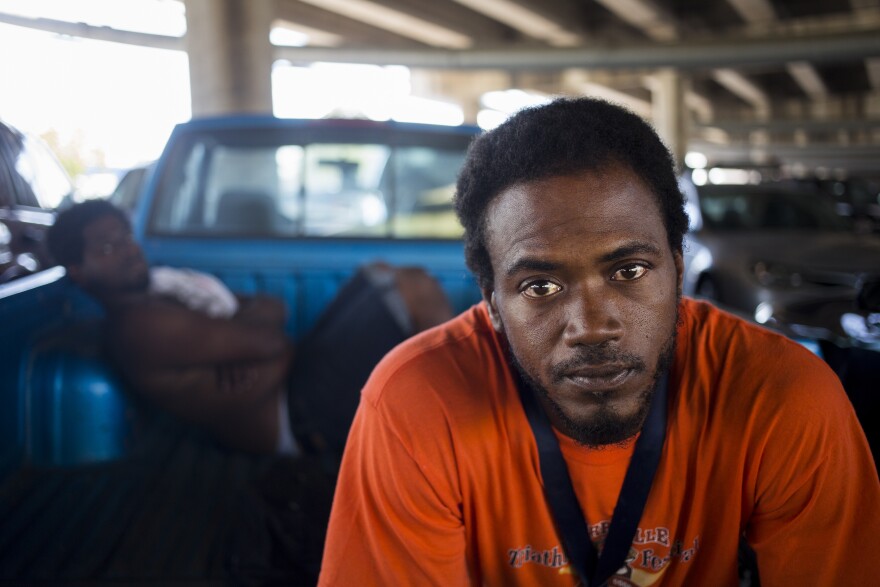It’s going to be easier for some populations to vote this year because of recent court-ordered changes to the voter ID law. One group is the state’s homeless population, which typically faces many hurdles casting a ballot.
Zion Jeffamoff is homeless right now and he’s planning on voting during this election. Right now, he's pretty easy to spot in downtown Austin. Typically, he holds anti-Donald Trump signs by the I-35 overpass at Sixth Street – some feature obscenities, while others question Trump's business acumen.
“I really didn’t even care about any of this, and then I was looking at the election and I got so irritated by what this guy said,” he said, referring to the GOP presidential nominee.
This election has gotten Jeffamoff so riled up that he says he's making the extra effort to vote. For most people, registering to vote is not a big deal, but if you are homeless it’s a little more complicated. Because, in order to vote, you need an address.

That’s where the Trinity Center downtown and Diane Holloway come into play.
Just a few hundred feet away from where Jeffamoff typically holds his signs is where Holloway and others keep some filing cabinets for people without a mailing address.
“We are a legal address for people to receive mail here and also as a legal residence in Travis County for voter registration,” Holloway explains.
The Trinity Center keeps about 500 folders – each folder holds mail for an individual person living on the street or nearby shelters. Holloway says, when they register to vote this is their legal address. It’s also where they will get their voter ID card and all their other mail.
Holloway says sometimes homeless people like to register to vote because a voter registration card can often be really useful in helping them replace an ID.
“It helps them get back on the grid if they are looking to replace an ID or birth certificate,” Holloway says.
Regardless of why they are registering, though, Holloway says every year she encourages people to vote. However, she says some people are always more interested than others.
“As you might imagine some of our homeless population feels a good bit disenfranchised, and I guess, like other people, think their votes won’t count and their voices won’t be heard,” she says.
Holloway is hopeful more people will be encouraged to vote now that the voter ID law has changed.
Following a court order, people who face obstacles getting an ID can cast a regular ballot if they sign a form. People who opposed the voter ID law in, predicted it would keep low-income people from voting. But now, things should be easier.
And, as far as Jeffamoff is concerned, he says he recently registered and is planning to vote for Democratic nominee Hillary Clinton in November.





